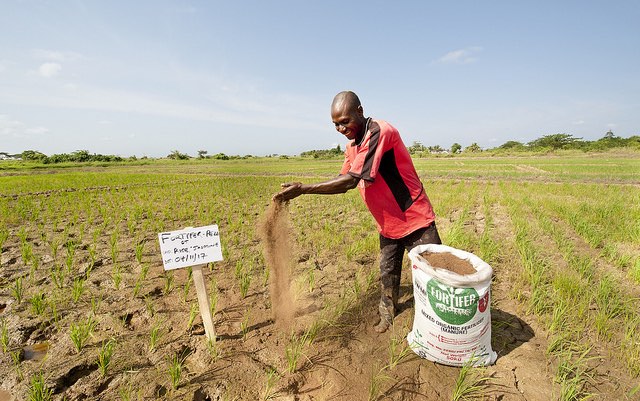It is no secret that fertilizer subsidies are back in vogue across Africa south of the Sahara as the preferred tool for governments trying to boost incomes of poor smallholder farmers by increasing farm production and agricultural productivity. The financial burden of fertilizer subsidies is also widely recognized, exacerbated by the expense of improving the accuracy of targeting, as discussed in Jayne et al, 2018.
Could targeting ensure that the poorest farmers receive subsidies and at the same time reduce administrative costs? A recent IFPRI study published in the Journal of Development Studies set out to answer this question, exploring the feasibility of targeting with proxy means tests (PMTs). A PMT approach can be broadly defined in the following steps: (1) gathering information on observable characteristics of potential beneficiaries, (2) using the information as a proxy (measure) for determining the means (resources) of the potential beneficiaries, and (3) deciding who should benefit from a program on the basis of their estimated resource levels.
We first examined how well existing mechanisms fare in reaching the right beneficiaries, assessing intended versus actual subsidy beneficiaries in Ghana’s FSP, based on poverty levels. Ghana’s 2012 subsidy reached only 11 percent of poor farmers nationwide, while benefits leaked to 72 per cent of nonpoor farmers. While this is not surprising for a universal subsidy, the finding should give pause for thought among governments concerned about reaching poor farmers with subsidies. Unsurprisingly, a targeting approach improves pro-poor coverage, ensuring that the subsidy reaches about 70 percent of poor farming household in Ghana’s northern regions.
Second, we examined whether a targeting approach could work in practice. The study evaluated how well and for how long a PMT will likely perform in correctly identifying the target group in the field, by conducting robustness tests using nationally representative data from three different time periods. We found that the PMT can be used for up to 20 years without losses in targeting accuracy or a need for further calibration.
Lastly, with scarce development resources to go around, is a targeting approach worth the cost? The study analyzed whether administering a targeted approach is truly more cost-effective than implementing a universal subsidy. As one would expect, administrative costs for a targeted approach are higher, about 50-60 percent of the overall subsidy program costs, compared with about 15 percent for a universal approach. However, in terms of cost effectiveness, GHS9.55 ($1.91) is spent for every cedi ($0.20) worth of fertilizer transferred to a poor farmer under the universal approach due to the leakage costs, while only GHS1.1 ($0.22) per cedi of fertilizer is needed under a targeted approach.
Ghana’s government has been providing input subsidies in an environment of constrained resources and risks of macroeconomic imbalances if such programs put an undue strain on the public purse. The oft-stated goal of the subsidy is ostensibly supporting poor farmers. This study shows the possibilities and limits for using improved targeting to achieve these objectives.
Kwaw Andam is a Research Fellow with IFPRI’s Ghana Strategy Support Program (GSSP). This post also appears on the GSSP blog.







